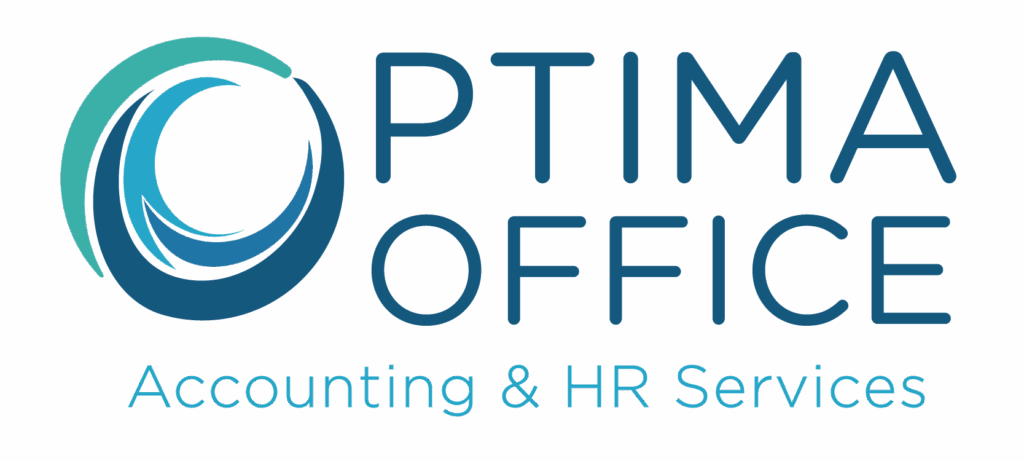Financial management becomes more complex for small and medium-sized businesses (SMBs) as the company grows. While hiring a full-time Chief Financial Officer (CFO) might not be financially feasible or necessary, a fractional CFO could be the perfect solution to help manage financial strategy, optimize cash flow, and guide long-term planning. But how do you know when it’s time to bring in a fractional CFO? Here are some telltale signs that your business might benefit from hiring one.
1. Rapid Business Growth
If your business is growing quickly, whether in terms of revenue, workforce, or market reach, financial complexities tend to multiply. Managing cash flow, scaling operations, and forecasting future growth require expertise beyond basic accounting. A fractional CFO can help your business navigate this expansion by developing scalable financial systems and ensuring that growth is sustainable. They can also guide you in making data-driven decisions to maximize profitability while maintaining liquidity.
2. Cash Flow Problems
One of the most common reasons businesses hire a fractional CFO is to solve cash flow issues. If you’re struggling with maintaining steady cash flow, facing payment delays from clients, or finding it difficult to meet operational expenses, a fractional CFO can help. They will assess your cash flow management processes, identify bottlenecks, and create strategies to improve liquidity. By optimizing working capital and forecasting future cash needs, a fractional CFO can ensure that your business avoids cash crunches.
3. Inadequate Financial Reporting and Analysis
As your business grows, the need for sophisticated financial reporting and analysis becomes more critical. If you’re relying solely on basic financial statements without deeper insights into your company’s performance, you may be missing key opportunities or risks. A fractional CFO can implement more advanced reporting systems and key performance indicators (KPIs) that align with your business goals. They can also analyze data trends to provide actionable insights, helping you make informed strategic decisions.
4. Preparing for Fundraising or Investment
If your business is seeking external funding—whether through venture capital, private equity, or bank loans—you’ll need robust financial strategies and reporting in place to attract investors. Investors and lenders want to see clear financial projections, a strong business model, and evidence of sound financial management.
A fractional CFO can prepare your business for fundraising by developing detailed financial forecasts, crafting compelling presentations for investors, and ensuring that your financial reports demonstrate growth potential. Their expertise adds credibility, which can increase your chances of securing the right funding.
5. Increased Regulatory and Compliance Burden
As your business grows, so do the regulatory and compliance requirements. Whether it’s adhering to local tax regulations, managing payroll compliance, or preparing for audits, non-compliance can result in costly fines and penalties. A fractional CFO ensures that your financial reporting is accurate and compliant with all applicable regulations. They can also help manage the complexities of industry-specific regulations or expanding into new geographic markets, ensuring your business avoids regulatory pitfalls.
6. Limited Time for Strategic Planning
As a business owner or CEO, you may find yourself consumed with day-to-day operational tasks, leaving little time for long-term strategic financial planning. If you’re frequently focused on immediate concerns like covering payroll or managing supplier payments, it may be time to bring in a fractional CFO. They can take over financial strategy and operations, allowing you to focus on growing the business. A fractional CFO will help you develop long-term financial goals, manage risk, and ensure that your business is prepared for future challenges.
7. Inconsistent Profitability
If your business’s profitability is fluctuating or margins are thinning without a clear reason, this could be a sign that you need more strategic financial oversight. A fractional CFO can dive into your cost structures, pricing strategies, and operational efficiencies to pinpoint where profitability is being lost. By optimizing your financial model, they can help you stabilize and grow your profit margins over time.
8. Complexity in Tax Planning and Optimization
Tax planning and compliance can become increasingly complex as a business grows, especially if you are expanding into new markets or jurisdictions. A fractional CFO can help manage your tax obligations more efficiently, ensuring that you take advantage of all available deductions and credits. They can also structure your business in a way that minimizes tax liabilities while ensuring full compliance with tax laws.
9. Need for Better Financial Forecasting
If you’re struggling to predict future financial performance or are unsure how to plan for upcoming expenditures, it’s a strong signal that you need a fractional CFO. Proper forecasting is crucial for anticipating cash flow needs, managing investments, and preparing for market fluctuations. A fractional CFO can create accurate financial models that help you make better decisions about hiring, capital investment, and inventory management, all while ensuring that your financial strategy aligns with your long-term goals.
10. Desire to Improve Operational Efficiency
Financial inefficiencies can often hide within your operational processes, impacting profitability and growth. If you’re unsure whether your current financial systems, internal controls, or expense management processes are running as efficiently as possible, a fractional CFO can help. They will conduct an in-depth review of your business’s financial operations and identify areas where cost savings or efficiency improvements can be made.
11. High Employee Turnover in the Finance Department
If you’re experiencing frequent turnover within your finance department, it may indicate a lack of leadership or clear direction. A fractional CFO can provide the leadership your finance team needs, mentoring junior staff, improving processes, and setting a clear financial vision for the company. They will also ensure that financial operations are running smoothly during periods of transition, preventing disruptions to your business.
12. Entering New Markets or Expanding Operations
If your business is considering expanding into new markets—either geographically or by launching new products or services—a fractional CFO can provide the financial insight needed to guide these decisions. They can conduct market analyses, assess the financial viability of expansion, and help create financial models to ensure that growth is profitable. Additionally, they can navigate the complexities of international tax regulations, exchange rates, and compliance issues, ensuring a smooth expansion process.
13. Need for Short-Term Financial Expertise
Sometimes, businesses need financial expertise on a short-term basis, such as during a merger or acquisition, restructuring, or financial audit. If your business faces a unique financial challenge or a specific project, a fractional CFO can step in to offer specialized guidance without the long-term commitment of a full-time hire. They can also fill temporary gaps in leadership if your full-time CFO is unavailable or has left the company.
Recognizing the signs that your business needs a fractional CFO can help you address financial challenges before they become major issues. Whether you’re facing rapid growth, cash flow problems, regulatory complexities, or strategic financial planning needs, a fractional CFO can provide the high-level financial guidance your business needs without the full-time commitment. By bringing in a fractional CFO at the right time, you can ensure that your business is financially prepared for both present challenges and future opportunities. We can help!
Visit our Fractional CFO Services page or contact us today to start a discussion.




